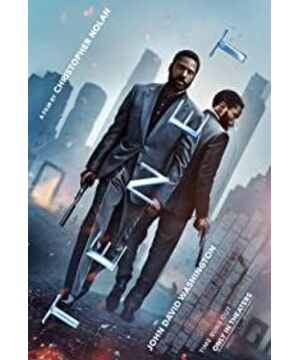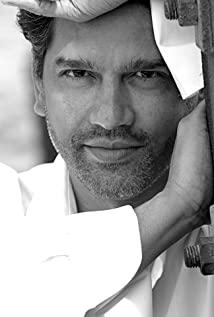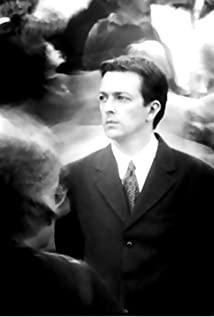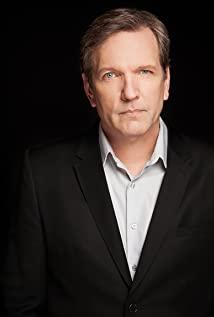"Creed" was positioned as Nolan's "Event Film" in the early stage of publicity. Later, after the film was released, it did not appear to be particularly "heavy". Instead, it became a "big event" that recorded Nolan's film reputation in Waterloo.
Some problems in this film are very clear: Nolan’s usual disabling scheduling, the mediocrity of film language caused by editing and substitutions, and the often criticized film characteristics such as "characters are speech machines" and "inhumanity" (this point) I haven't seen it much, I have the opportunity to spend some time discussing it).
There are other issues that are a bit vague. I can't say that it is absolutely wrong for the time being, but I realize that I don't agree with some of the criticisms in my heart, so I just try to refute some of the accusations.
Accusations of the rationality of the film
Many people have discovered the "BUG" in the film, such as "bullet holes that existed in ancient times", "high buildings that only existed for one second", etc. To be more specific, the concept of "Creed" can be integrated with normal cognition. Part of it is "contact" and "touch", the abnormal is the process of "damage" and "destroy", the more obvious is that the male protagonist will take Kate into the transition machine in the second half of the film, which appeared out of thin air on his arm ( I stabbed myself), and the last minute of Neal’s life: inside the fortress installed by the algorithm, from the front side, the dead Neil got up
-Bullet hits Neil-Neil's helmet is restored-Neil is resurrected and unlocked
-The host and Ivers enter the door-Neal locks the door and goes back
From the reverse view, that is, Neil’s perspective, Neil first saw the three people fighting inside the door-Neil opened the door-the male protagonist and Ivers returned to the door-Neil locked himself in the door-Neil Blocked between the enemy Wakov and the hero-A bullet appeared on Neil's head (the most abnormal place)-The bullet rushed out of Neil's head and returned to the Wacof gun. Neil died in the reverse direction and came in the forward direction. Look at Neil's body in the fort in ancient times.
There is a view that the concept of forward and reverse movement along time set by "Creed" completely deviates from the logic of reality, and the scene inside is impossible to appear, so "Creed" is a meaningless and bad film with bugs throughout the film.
I personally disagree with this view. One of the cores of science fiction films is fantasy, and the fantasy landscape has a distance from reality, or the absolutely real objective world, in time and space, but some distances seem to be walkable and can be consumed. The distance is completely inaccessible. "Creed" should belong to the latter, and its conception is basically based on an impossible basis-I feel that this is where it is interesting. The principles in this concept cannot be realized in reality, but the scene of the story is embedded in the real world, and the story is runnable in the setting of the film, and the display of the spectacle has an element that can be integrated with normal cognition. , And at the same time preset an opportunity for the abnormal spectacle to impact the viewer's feelings.
Including the so-called BUG, the "destruction" process is abnormal. The reverse destruction is recovery. Two sets of opposite time operation mechanisms have formed the contradiction between establishment and extinction. I really feel that it is very interesting to entangle and contemplate these contradictions. The Creed puts some paradoxes that need to be examined on the bright surface. Its conception is bolder than it seems: First, it does not consider whether the scene may exist, although it will test what it will look like if it appears. It shows the collision of the reference system. We still have the opportunity to see the conflict between the characters of different systems competing for the control of the object. I feel that this kind of scene can only be demonstrated in the imagination. It is also very frustrating to set the possibility that it does not happen in reality or that there will be a BUG during execution, which completely negates the meaning of its visualization. To deny image production with the emptiness of probability, the “fantasy” that has always been emphasized has been placed at a low level that can be accused at any time, and its prospectiveness will also be self-negatively canceled by human will.
Accusations of difficulty of understanding
This topic involves the difference in viewing methods, but the following views use the same way of thinking, so let’s say in advance: the following discussion of the two viewing methods may be very strange, not only precise, but also divergent. Refined#-#
(1) There are two more obvious ways to watch "Creed". One is that many people are used to watching Nolan's movies, which is to keep the brain running to understand what happens at each plot point. The other is that I will talk about it later. .
Many people obviously watched it in the first way. I understand that this time the story of Nolan’s film has indeed become more difficult to understand. Many people can’t keep up with their ideas during the watching process than when they watched Nolan’s films before. , Especially in the car chasing scene as the symmetrical point of the plot. However, while observing the reaction of bean friends to the film, although I can understand that you are uncomfortable with the experience of "not understanding", I do feel a bit puzzled by the criticisms in this regard: the so-called "complex" and "difficulty". Are "understanding" and "puzzle-solving" really complete shortcomings? (It only refers to the incomprehensibility of the plot. I have included Nolan’s criticized hot chicken scheduling and editing errors in the film that mislead the audience into the objective defects of the film. It does not belong to the "incomprehensible" solution discussed here. "Mystery" and other parts)
I understand this as a certain attribute of the film, as a part of the film as a whole, although I actually prefer to regard this as an advantage: the attraction of the film to the audience, a relatively large part of it comes from the suspense, those to be examined In addition to the text, there are also sound and pictures that contain information at the same time. The huge amount of information in the content of the movie itself or the concealment of the way the information is presented is the manifestation of one level of suspense superimposed or nested another level of suspense, which in fact deepens the explorability of the image and the ability to receive the viewer's attention. The “puzzle” part of the movie can interact with the viewer’s curiosity (but this puts a “patient” requirement on the viewer, and the viewer needs to cooperate with the movie to make the puzzle function work) and guide the viewer Go deep into the exploration space reserved by the movie puzzles to explore the image structure. The white space in the film's text performance complements the viewer's understanding or imagination through observation.
So my opinion is this. Setting the content in the movie that requires more observation to understand, what you get is an ideal sender-receiver model, and the two interacting parties complement each other. (However, as I just mentioned, the acceptance of the patience requirements put forward by the movie viewers is the premise for the establishment of the ideal model, which is related to another question: Is a film that puts forward certain requirements, even harsh, is a good movie? ? My current conception is positive for this kind of film. In fact, it seems that every film will have some kind of "requirement". If its established form and style are to achieve the result of being appreciated, the audience must have The ability to accept and be willing to accept the style and internal elements of the film. This is still a problem involving the fit between personal preferences and the object to be appreciated, and the focus is still on people. However, if the requirements of the film are not set on people, they are similar. For things like projection media, there may be a large part of the value evaluation of the film that needs to be discussed. A more extreme example is the film made by the ASYLUM factory [the crumb factory that represents the "Atlantic", "Operation Dunkirk", etc., Its film does not require anyone to appreciate it seriously. It only requires the audience to be deceived, paid for, and disgusted. The essence is to ask someone to spend money on copycat discs. The key point is money. This kind of film is made simple and at the same time. Disrespect for anyone, even their creators cannot be regarded as creators, but workers who produce profitable audiovisual garbage, basically can be judged as objectively "bad movies.")
Movies are an artistic style, but in the context of the existence of cinemas as an indispensable place for film presentation, many times people will treat movies (more precisely, an opportunity to enjoy movies) as commodities (do not deny this concept, for me) Consumption for the purpose of appreciation is of course understandable.) Different people have different buying ideas. Among them, a large number of people think that "difficult to understand" destroys the movie-watching experience and think that a movie is bad. I especially doubt the correctness of this idea of judging the quality of the film. I don't think that a film that is difficult to understand should not be entered into the theater. And there have been a lot of movies whose charm lies in the difficulty of understanding before. I think that if I cite any of them, someone will say, "To write the example of Nolan xxx is too worthy of him." It should not be difficult to set the understanding. It was a mistake, it shouldn't be before, and it shouldn't be now either.
(2) Another way of viewing: Just relax and watch the normal blockbuster, close to the "no brain" view, pay more attention to receiving information, rather than processing and reflecting on information, to gain a shallow understanding, you follow this view You may find that this piece is quite easy to understand. To be honest, my intuitive feeling after watching the whole film is that "Creed" expresses directly. I feel that Nolan did not deliberately make this film difficult to understand. It is completely different from many people's belief that Nolan tried to make this film obscure.
After all, this film is very simple to sum up (the big frame is even close to "cookie cutter"): two good friends, international spies and beautiful female giants work together to defeat the domestic violence male cruel villain who wants to destroy the world-only the amount of information contained in the plot Large (from a critical point of view this is called "information overload") and strong relevance.
Looking at the source of this "difficulty", it is actually just the objective impact of the setting of the transmission device allowing the character to move along time in the forward and reverse directions. The way the film is presented is still frank. There are still many original interpretations and rule prompts in this film. .
Nolan is definitely not teaching the audience, he just gave a few rules and let us take a look at his visual imagination (the audience of science students does not need to laugh at what the liberal arts audience does not understand, Nolan is a personal director, a big concept It's all made clear in human terms, regardless of the knowledge level of the audience, watching movies is also divided into a hammer (arts and science).
Moreover, "Creed" looks "straighter" than many of Nolan's previous works (not sure if it is the influence of Lame's editing work or the clear decent villain setting makes the plot assignment very clear), and the experiences of different characters The interspersed passages of the plot are only shown in the interrogation scene and the last battle. Most of the time, the film follows the perspective of the protagonist to express the plot. This basically single-threaded processing method has simplified the understanding of ideas. Including because Jennifer Lame is very concerned about the character’s expressions, in order to highlight the character’s reactions in all aspects of the plot, many paragraphs in the film are broken, and the characters’ lines are also very straightforward, so the character’s mood and plot It is straightforward, and it is easy to cut in from the turning point of the plot to gain an understanding of the big frame by actively accepting the information when watching.
The accusation of balancing the level of understanding and liking
I don’t agree with the condemnation of saying “I don’t understand you and you still hit five stars”. Let’s assume that most people who hit five stars and give praise are purely sincere, not unintentional and blindly flattered (I do like it) And I arrogantly think I "understand"), then I think even if I don’t understand it, it won’t prevent people from liking it. Love and preference are the evaluation criteria of many people, and most of the people’s love and preference come from In the category other than understanding, there is no conflict between incomprehension and positive evaluation. It is understandable to affirm something that one has not thoroughly understood, not to mention the so-called "understanding" and "understanding" a work has always been a false proposition.
We often try to extract as much information as possible from a certain work when we repeatedly watch it, and then generate an impression that we "understand". However, in many cases, there is a large proportion of "misreading" in our "understanding". ", we rarely see a director saying, "I want to express what I want to express in this film. blah blah blah... I didn't want to express my dreams. I would rather over-interpret it..." So we are almost inevitable. He has lost his grasp of part of the connotation of the film.
Or, the overall understanding of the film can be roughly divided into two small areas, one is the thought of the creator, and the other is the new consciousness of the film itself that exists and derives from the consciousness of the creator.
The creator plans the content of the image and puts it into active expression. After the image is materially completed and fixed, its new consciousness will surpass the text set by the author; at the same time, the viewer is influenced by the experience or psychology of himself and the filmmaker. In terms of distance barriers that cannot be eliminated, it cannot fully follow the creator’s ideas when trying to understand the film. Moreover, we must know that our understanding direction will not be limited by the image text when the film consciousness diverges freely. We will adopt our own Private, different experiences and concepts to understand the film, there are different "misreadings". Therefore, "thorough understanding" is also a concept that is basically impossible. , It doesn’t make much sense to entangle whether to understand and like it or not. (The good thing is that we can disregard "misreading" as misreading, and simply tolerate this as an irreproachable direction of understanding, as we have grasped the deeper meaning of the film, and promoted the two language families of watching and being watched. Cooperate to achieve the ambiguity of images and art)
The accusation that completely crossed the line
Now is the so-called simplified Chinese Internet era. Rubbish vocabulary such as "carrying private goods", "crooked buttocks" and so on are enough to make me sick. Now there is a phenomenon of broken language in the field of expressing personal likes and dislikes, and a particularly bad language has begun to become popular. Devaluation is always compared to "licking shit". Some people hate a piece of work and think that a piece of work is shit, so they describe the person who likes and praises the work as "licking shit."
If you just say that something he hates is shit, it doesn't matter, you are just very emotional about this thing, it is up to you to praise it for the better or to degrade it. This is your thoughts, judgments, and understandable.
But this kind of hatred would be ugly if it had to be expressed through insulting people who like it. Originally you hate yours, I like mine, it's good if you don't invade each other, and it's not cheap to delineate personal preferences as the root cause of humiliation. When I write this paragraph, I don’t want to use words rigorously. You think that giving the group a rough qualitative can show that you have a strong judgment and quick thinking, but this is not agile, but impetuous, maybe it is something b. Prejudice is a cognitive shortcut, but its roots are emotions and intuition. Your emotions and intuition are surprisingly directed to "lick shit."
I agree with the criticism
The TENET-shaped structure set in the plot of "Creed" is exquisite, but it has a certain degree of "artistic sense" weakened, which is obvious from the audio-visual style. Nolan's energy is more concentrated in the action scenes in this film, and Ludwig's music obviously has the purpose of directly provoking the audience's senses. From the perspective of audiovisual alone, this film is not very experimental, but agrees with IGN's statement that this is Nolan's most conservative film. This is a Nolan style, enjoyable (for me, a low-end movie fan), but a simple and rude film by his grandma (diss here is a wave of B station teenagers, watching IGN hate them TLOU2 scored 10 points and felt traumatized. Even IGN media would criticize the film without knowing that IGN’s comment on "Creed" was "shameless", what a b)
There is a direct reason why "Creed" is not as popular as most of Nolan's previous movies, and this is obvious: "Creed" is obviously not as good as the impression left by most of Nolan's previous films tends to be "shock". To put it more bluntly, this piece is not emotionally appealing.
One of the reasons may be the mediocre style. The soundtrack and editing changes have caused this film to be a kind of "cool film" I mentioned above. The film is to a large extent performed in a stimulating and lyrical way. There are very few ingredients.
Another reason may be the special setting of the plot. The protagonist has no background information, no name, and a blank cognitive model that places the audience’s perspective. Unlike Cobb, Cooper, or even Bruce Wayne, who has clear background information. And interpersonal relationship display. In addition, the protagonist has been meeting people who have not interacted with him in the past during the course of the plot, and has been in the stage of seeking knowledge. Most of his emotions are concentrated on the questioning psychology from reason, unlike Cooper and others, even Dunke. The emotions faced by Erke’s soldiers focused on sentimental psychological reactions such as longing, sadness, and fear. Apart from using Gao Mei’s role to express some emotions, the film has almost no other opportunities to be laid in "Inception" and "Interstellar". A common emotional divergence point in films such as "Passing Through".
After thinking about it, I feel that Nolan may not have the highest utilization of this concept. For example, he can give up the antagonism of good and evil and tell a story with a higher point of view, or the design of the spectacle is useless. He really should pick one. The shooting time was reversed on rainy or snowy days.
Self-righteous knowledge
In addition to the above aspects, "Creed" has many production links that failed for most people, and even failed objectively. It's just a fluke that my attention is not inclined to this aspect, and I still can't get rid of it. Like the special elements in the movie, at least my experience is positive.
It is estimated that Nolan is over-famous, and his films often have unrealistic descriptions, just as many critics are still saying that "Creed" is "another" brain-burning masterpiece of Nolan. In my opinion, this is a promise. Lan's first film since "Shards of Memory" is considered to be a waste of brains. Among the two most touted "Inception" and "Interstellar" in Nolan's film, "Interstellar" is actually only five-dimensional. The passage of space can be said to be confusing, and "Inception" has nothing to do with brain burning. My experience is almost the same as Chris Stuckmann.
A friend mentioned that Nolan’s "Creed" made the movie a toy. In fact, I agree with his idea, but my attitude towards this idea is different from him. I think if we want to try a certain metaphor for things that bring us a pleasant experience, it is not just movies. Music, paintings, articles, etc. can actually be compared to "toys". Toys are a general expression that provides happiness, The concept of contented things, our behavior of appreciating things, can actually be regarded as "playing" with the use of sight, hearing, etc., and the most important thinking, by canceling finger touch, and becoming a "toy" can be advanced or inferior. , Freely exert its artistic power to stimulate the secretion of dopamine. Here the film creation is free, the audience enjoys the angle of freedom, and the attitude respects the film. (However, I am opposed to the concept of finding "fun" in movies. It is not common in books, paintings and other fields that are closer to "art" in public perception, but it is a small thing in movies and games. According to the market: "I watch movies [playing games, etc.] just to relax and have fun." The fun of having fun and the enjoyment mentioned earlier belong to two levels, and at a lower level. The idea of fun is to Movies are merely a pastime, requiring the film to "do not cross the boundary", while restricting the freedom of creation and the freedom of appreciation [may not be regarded as "appreciation"]. In this mode of thinking, we praise a certain film only because it pleases us. The senses, rather than respecting the movie in the way of looking at the work or even the artwork.)
In recent years, I have been trying to remind myself that the movie is made by a large team. I seem to have realized in the past two years that the "Nolan" I like may actually be "Hans Zimmer + Lee Smith + Nolan". "Lan", this does not prevent me from always liking Nolan. It is impossible for him to have no credit in the film he directed and recognized by many people. He wrote the story of the film and mastered the structure of the film he made. The tonality, the direction of the form, and the final appearance of his films are what I like.
Maybe I belong to a lot of people who don’t like Nolan’s "PUA" Nolan fans, I feel that there is no need to condemn Nolan’s “PUA” (not sure about the bad nature of the PUA in my knowledge and what they say It is not the same, including the word "PUA[pick-up-artist]" has also been abused. This point has been said by a friend before. I am not sure if this word has reached a stage where a new meaning has been added), promise Lan likes to play tricks on the narrative, but the scheduling is not good. In the past, there were excellent soundtracks and editing partners to add highlights to the film (or cover up the shortcomings), and make the film good-looking. I think it’s just to give the audience a good experience, and even make the audience feel that the movie he made is a good attempt at "persuasion." This persuasion is not evil, far less than the bad meaning of the concept of PUA when it first appeared. (That is, although I only disagree with the term "PUA" at present, it is far less than a strong hatred of the accusation of "carrying private goods", but my objection to this term is the same. You dislike what he tried to persuade. You can criticize the content, there is no need to condemn his persuasive behavior; similarly, if you hate a creator’s thoughts conveyed in his work, criticize his thoughts. Don’t accuse him of expressing his views in the work. If you want to express some opinions in creation, someone has to point fingers and feet to restrict his creative freedom, then I can only go to other people)
Nolan’s scheduling is poor, the movie is "inhuman", but he has been given too much praise by the public, he "robs" the attention of fans, he has become the focus of the topic, and at the same time he has many fans starring in inferiority. Other outstanding filmmakers. This buddy Nolan is easy to be liked, and easy to get black. Every filmmaker needs to be treated as fairly as possible. Nolan may be the most unfairly evaluated director. The current collapse of "Creed" is a good opportunity to increase our understanding of him. Maybe everyone The conclusions reached are different, but the views on him will be more or less comprehensive.
Now think about the previous creed being promoted as "Event Film." Maybe this "blockbuster" is for Nolan himself. He made a palindrome film for a second stone monument and the concept of reverse time. A spy movie he wanted, the tenth film he wrote and directed.
He has the element of "playing movies" this time. I watched him having fun, and I was quite satisfied.
View more about Tenet reviews











